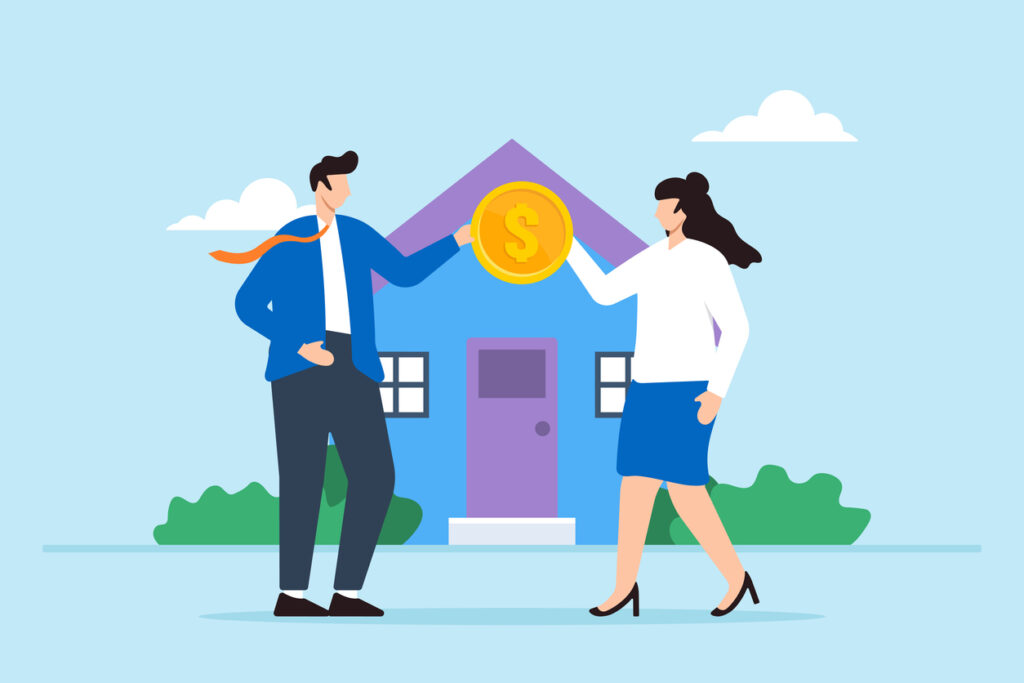When you’re considering a house, it’s important to consider the costs and the costs you’ll need to budget for after closing.
Making sure you have enough money to cover initial costs, like the down payment, can be a major challenge. Still, you’ll also need to be prepared for the regular expenses you’ll pay as a homeowner and unexpected costs that can come up.
If you’re ready to buy a house for the first time and not sure how the process goes, we’ve got you covered with a list of all possible costs you’ll face and should save for before going on a house hunt.
So let’s get into it!
In This Page
5 costs that you should consider before buying a house
As you’re going through house listings and finding one that fits your budget, you must calculate three main payments for the initial buying stage: down payment, closing cost, and mortgage.
With those out of the way, there are three more costs you’ll need to consider: HOA fees, property tax, and maintenance before moving in. To give you a better idea of how each cost will look, you will break them down and give you a rough estimate of these costs.
1. Down payment
The down payment is the amount of money you need to contribute to purchasing a home. Upgrading your down payment can help you reduce your need to borrow money. Lenders like to see larger down payments when considering a loan, which indicates a lower risk level if the borrower defaults.
You must set aside 20% of the purchase price when buying a car. This is not always the case, though. In fact, according to the National Association of Realtors, the typical first-time home buyer puts down 7% of the purchase price.
Figuring out your down payment means thinking about your entire budget. Don’t plan on spending every penny you have on your down payment. You’ll overwork yourself and get stressed out trying to cover all your other expenses.
2. Closing
There are a variety of fees charged by the lender and other companies involved in approving your loan and finalizing the sale, including an appraisal fee, a credit report fee, an origination fee, an application fee, a title search fee, a title insurance fee, and an underwriting fee.
Different lenders may have different fees, so it’s important to be aware of the origination and underwriting fees, as these can often be where you can save the most money. Since closing costs are paid upfront and can not be avoided, you should also include this amount in your budget.
3. Mortgage
When considering how much money you need to buy a house, it’s important to understand how much your mortgage will cost you every month. Your mortgage payment is a cost that is generally predictable and consistent each month.
Mortgage calculators can help you determine how much you’ll owe each month. When shopping for a mortgage, it’s important to compare rates with several lenders.
A recent study by the Consumer Financial Protection Bureau shows that more than three-quarters of all borrowers only applied with one lender, and missing out on a competitive rate could result in thousands of dollars in additional costs over the life of the loan.
4. HOA fees
Homeowners associations (HOAs) play an important role in communities by setting rules and enforcing them within their boundaries. An HOA is a community organization that oversees shared spaces and amenities like a neighbor’s pool, tennis court, and security gates.
The HOA often maintains these common areas, which can help keep the area looking clean and organized. An HOA fee is a periodic (usually monthly or quarterly) charge by the homeowners association to pay for its services.
While it might not have a big impact on your overall budget, if you’re planning to buy a house in an HOA area, you would have to consider this as a part of your long-term expense, so it’s better to understand the cost beforehand.
5. Property tax
A first-time homebuyer can arrange their mortgage. This would mean that their property taxes are mostly woven into the monthly mortgage payment. Taxes are typically paid from an escrow account. Many lenders prefer to do this because it ensures that taxes are paid and thus protects their investment.
Your overall mortgage will turn out to be more than you planned, so talk to your lender about how they deal with property tax payments. If you’re paying them separately, you might also have to consider tax costs in your savings budget.
How to prepare to buy your first house
After you’ve determined how much money you need to buy a house, the next question to consider is how to get ready to make the purchase. There are a few things you can do to make the process of buying a home easier.
Maintain your credit score
Lenders use your credit score to determine your creditworthiness. This score is based on factors such as your debt-to-income ratio, credit history, and other factors. If your score is on the lower side, try to take steps to improve your credit history before you apply for a mortgage.
Plan a budget
With all these costs estimated for the house or your dreams, plan a budget to save money for your house and implement it until the initial payments are ready. Planning will save you from unnecessary stress later in the process and allow you to enjoy the moment of becoming a house owner instead of worrying over it.
Key takeaway
When it comes to how much you need to buy a home, there’s far more to consider than the listing price. When developing a budget, consider up-front and ongoing costs, and take a close look at your monthly finances to make sure taking on a mortgage and paying ongoing costs doesn’t become a long-term financial burden.
We wish you the best in saving money and hope you find your dream home soon!

